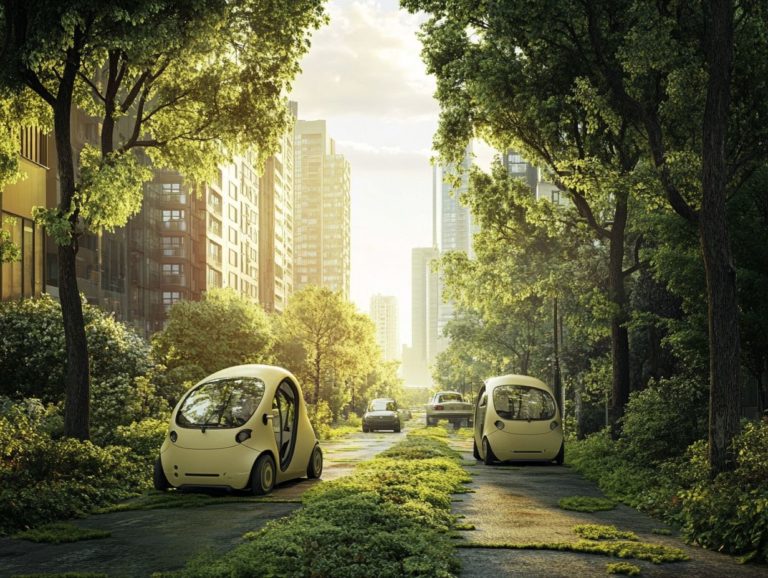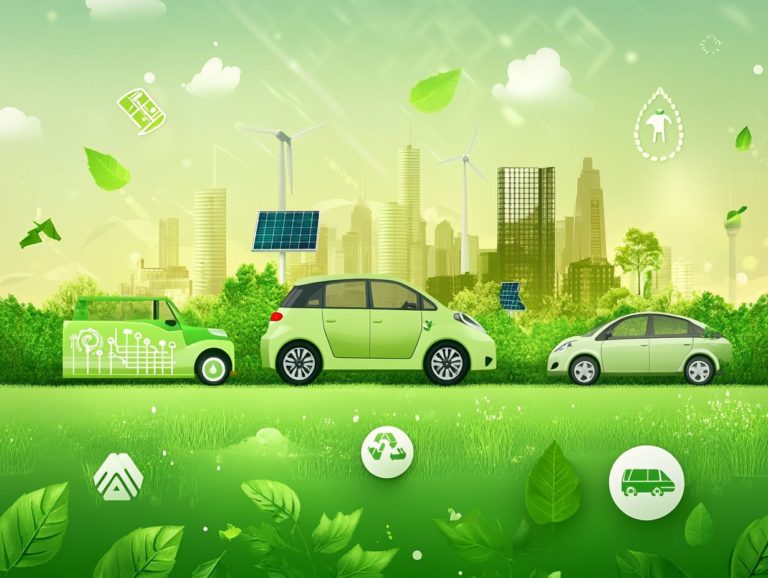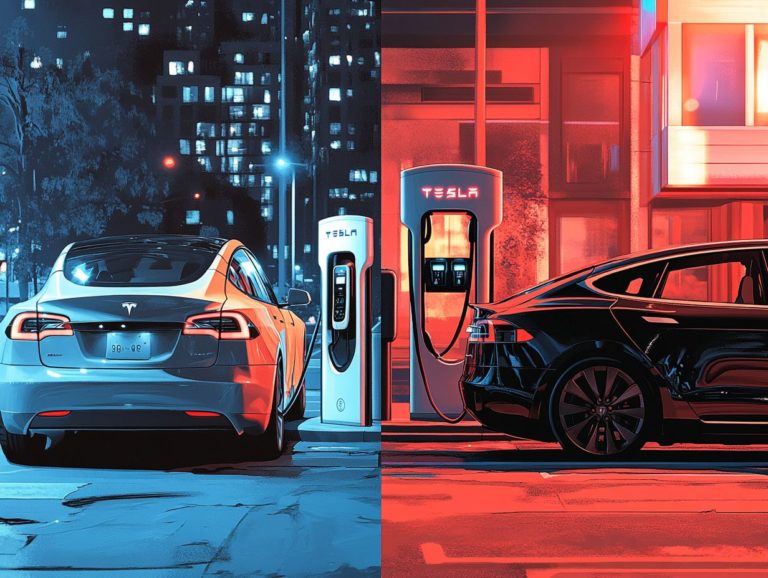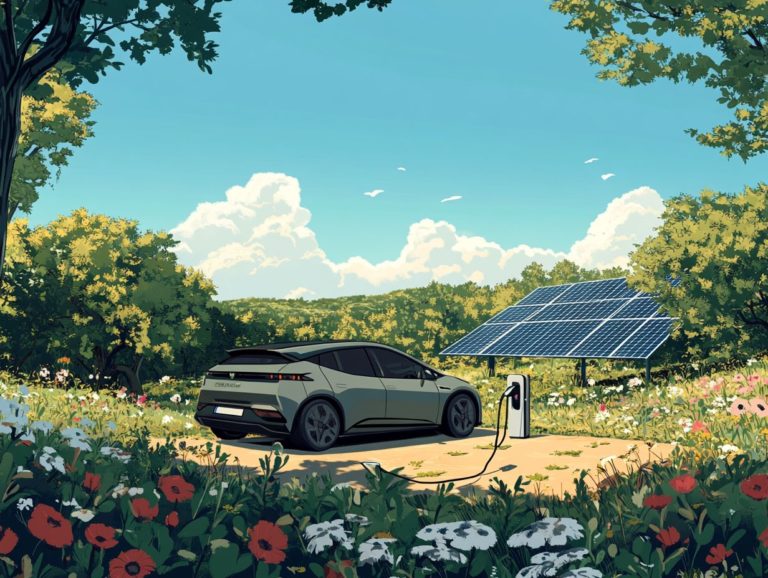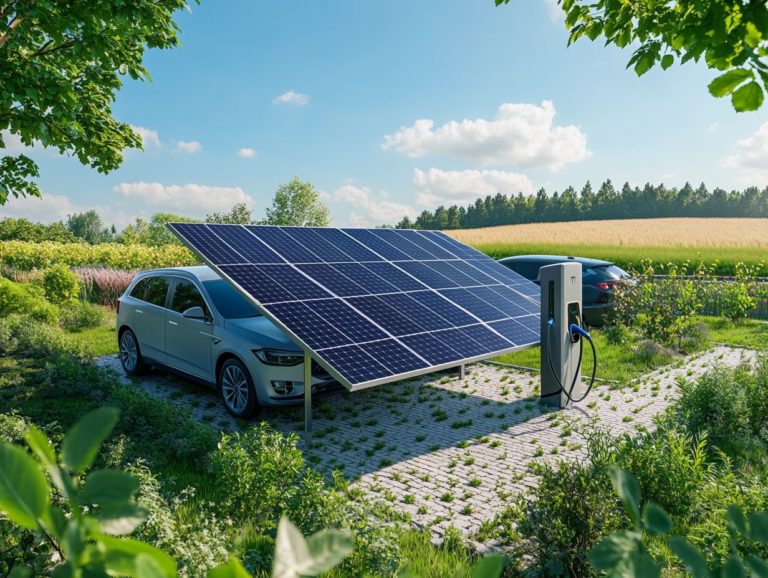7 Myths About Electric Vehicles Debunked
Electric vehicles (EVs) often spark passionate discussions, filled with misconceptions about their true benefits.
Many worry about costs, performance, environmental impact, and maintenance, leading to skepticism about switching to an EV.
This article explores seven common myths about electric vehicles. You might discover insights that change your perspective!
Whether you re considering an EV or just curious about the facts, keep reading to uncover the truth behind these beliefs.
Contents
- Key Takeaways:
- 1. Electric Vehicles Are More Expensive Than Gas-Powered Cars
- 2. Electric Vehicles Have Limited Range
- 3. Charging Stations Are Hard to Find
- 4. Electric Vehicles Are Slow and Have Poor Performance
- 5. Electric Vehicles Are Not as Safe as Gas-Powered Cars
- 6. Electric Vehicles Are Bad for the Environment
- 7. Electric Vehicles Require Special Maintenance
- How Do Electric Vehicles Compare to Gas-Powered Cars in Terms of Cost?
- What Is the Range of Electric Vehicles and How Does It Compare to Gas-Powered Cars?
- Where Can One Find Charging Stations for Electric Vehicles?
- What Are the Performance Capabilities of Electric Vehicles?
- Are Electric Vehicles Safer Than Gas-Powered Cars?
- What Is the Environmental Impact of Electric Vehicles?
- How Does Maintenance for Electric Vehicles Compare to Gas-Powered Cars?
- Frequently Asked Questions
- Are electric vehicles really as environmentally friendly as advertised?
- Are electric vehicles reliable?
- Is it difficult to charge electric vehicles?
Key Takeaways:
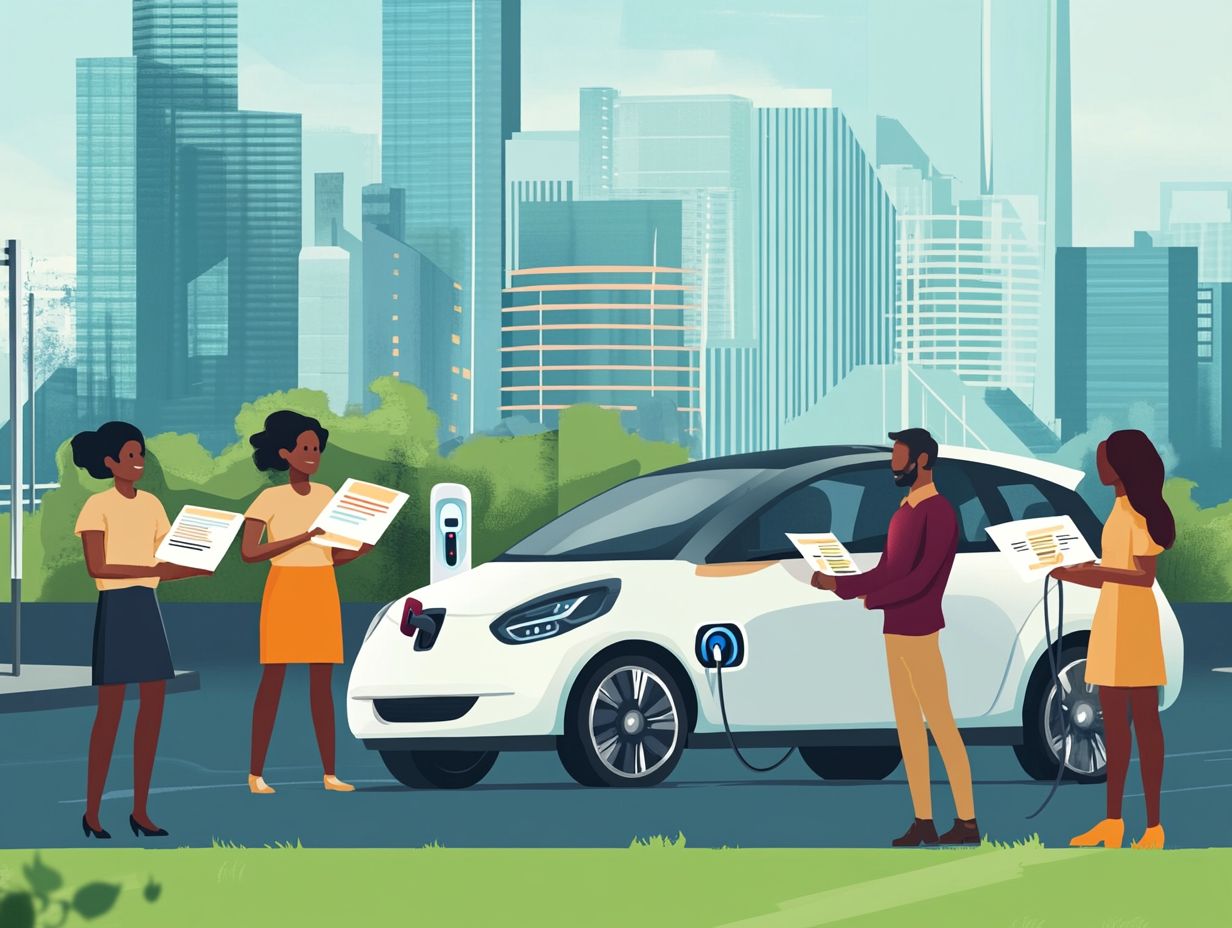
- Electric vehicles can actually be more cost-effective in the long run due to government incentives, lower fuel, and maintenance costs.
- Modern electric vehicles have a range of up to 300 miles, making long-distance travel more feasible than ever.
- Charging stations are becoming more common and accessible, with many options for home and public charging.
1. Electric Vehicles Are More Expensive Than Gas-Powered Cars
Electric vehicles (EVs) may come with a higher upfront cost compared to traditional gasoline cars. However, the long-term savings and environmental benefits they offer can more than justify that initial investment for you as a budget-conscious consumer or environmentally aware driver.
This initial expense largely arises from battery manufacturing and the advanced technology involved in creating electric vehicles, which can be pricier to produce. However, once you hit the road, you’ll likely enjoy significant savings on fuel after all, electricity is generally less expensive than gasoline. Plus, maintenance costs are typically lower, thanks to fewer moving parts and less wear and tear on the vehicle.
Various incentives from the Department of Energy and state programs can help ease your financial burden, making the idea of owning an EV not just appealing but increasingly accessible.
2. Electric Vehicles Have Limited Range
While early electric vehicles (EVs) faced criticism for their limited driving range, you’ll be pleased to know that advancements in powerful batteries, like those in models such as the Tesla and Nissan Leaf, have dramatically improved the electric range of current models, shattering those common EV myths. To ensure you make an informed decision, be aware of the top 7 mistakes to avoid when buying an EV.
The incorporation of lithium-ion batteries has truly transformed the landscape, allowing you to embark on longer journeys without the nagging worry of running out of charge. When considering an EV, factors like battery lifespan and charging times become paramount, as today s drivers increasingly seek reassurance in their investment.
Manufacturers are not just focused on extending range; they are also committed to enhancing your overall experience by developing faster-charging solutions. This responsiveness to your needs is fueling innovation within the electric vehicle market, ensuring it remains competitive while actively contributing to environmental goals.
3. Charging Stations Are Hard to Find
The notion that electric vehicle charging stations are difficult to locate is quickly becoming a relic of the past, especially with the recent influx of investments in charging infrastructure, driven by initiatives like the Bipartisan Infrastructure Law aimed at improving accessibility in states such as California.
This ongoing evolution is crucial for the advancement of electric mobility, giving you the power to embrace electric vehicles without the worry of where to charge. Government funding is instrumental in this expansion, paving the way for charging stations in both urban and rural areas and creating a robust network that alleviates concerns about running out of battery.
As convenient and dependable charging options become increasingly available, any hesitance you may have about transitioning to electric vehicles is likely to fade away, ultimately paving the way for a more sustainable future in transportation.
4. Electric Vehicles Are Slow and Have Poor Performance
You might think electric vehicles (EVs) are slow, but many modern models are redefining that notion with impressive performance capabilities. Thanks to advancements in vehicle technology, these cars offer efficient driving and rapid acceleration that can easily rival traditional gasoline cars.
Take, for example, some high-performance EVs that can go from 0 to 60 mph in just a few seconds competing with even the fastest sports cars on the market. It’s not just about speed; these electric models often come equipped with innovative safety features like automatic emergency braking, lane departure warnings, and enhanced stability control systems.
These enhancements elevate driving performance and significantly boost overall safety, making them a compelling choice for those who value both excitement and security on the road. This combination of speed, safety, and cutting-edge technology places electric vehicles firmly in the spotlight as formidable contenders in today s automotive landscape.
5. Electric Vehicles Are Not as Safe as Gas-Powered Cars
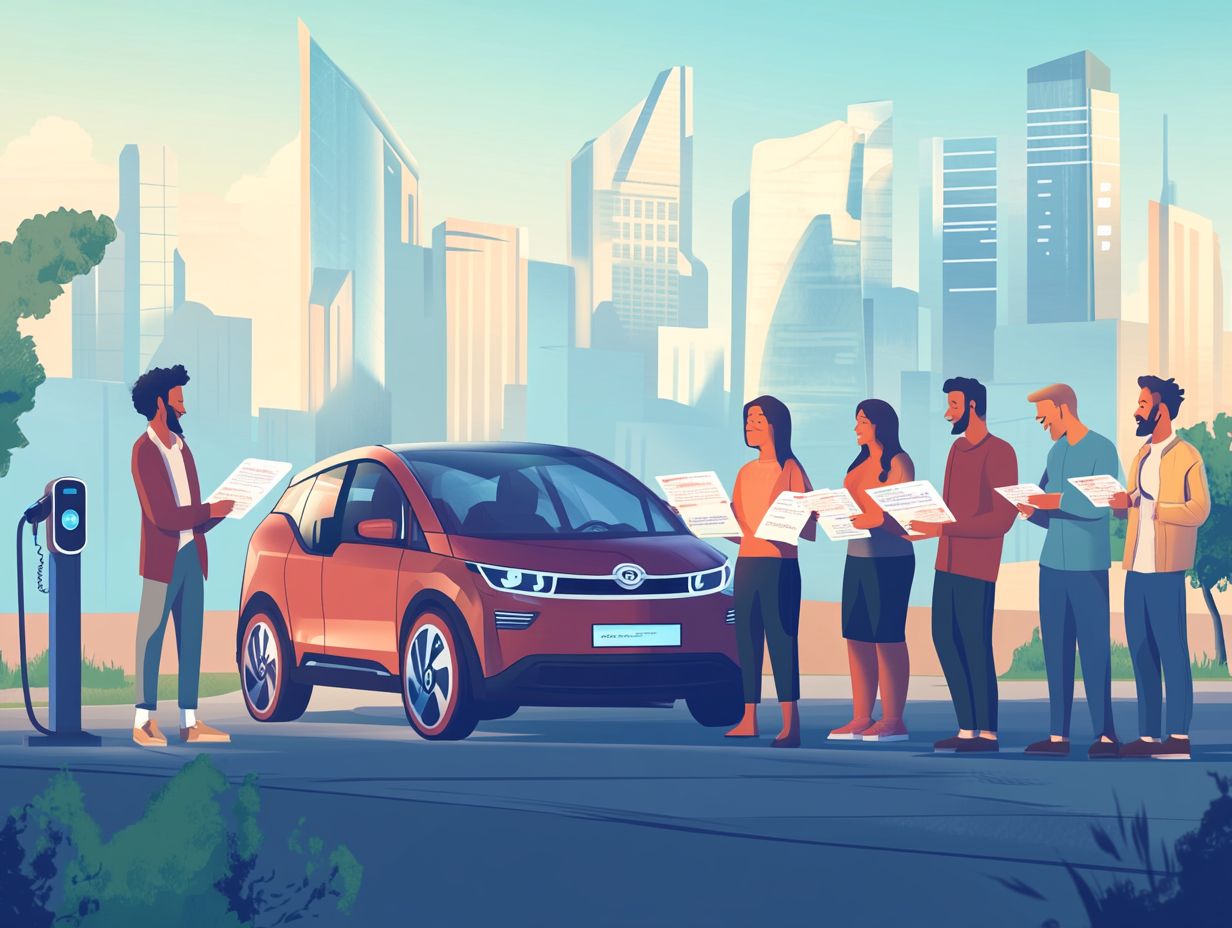
The belief that electric vehicles (EVs) are less safe than their gasoline counterparts is frequently countered by safety ratings and crash test results from reputable organizations like the EPA. These assessments reveal that EVs come equipped with a host of advanced safety features designed to provide exceptional protection for passengers.
These vehicles boast unique design elements, such as a low center of gravity, which makes them more stable, and crumple zones that effectively absorb impact energy, enhancing passenger safety during collisions. EVs have fewer mechanical parts, which helps them perform better in frontal and side-impact tests.
Real-world evidence underscores this notion; the structural integrity and innovative materials used in the construction of electric vehicles frequently result in fewer injuries during accidents compared to their conventional counterparts. This further reinforces the argument that safety in EVs is not just adequate it s exceptional.
6. Electric Vehicles Are Bad for the Environment
While some critics suggest that electric vehicles (EVs) harm the environment due to battery production and disposal, a closer look reveals something quite different: their overall lifecycle emissions are significantly lower than those of gasoline cars, especially when they re charged with renewable energy sources.
This advantage stems largely from the complete absence of tailpipe emissions, a major contributor to urban air pollution and climate change. As battery technology advances, recycling rates for EV batteries are on the rise, allowing for the recovery of valuable materials and reducing waste and environmental impact.
By prioritizing renewable energy, you not only further diminish carbon footprints but also help cultivate a sustainable ecosystem for EVs, embodying the vision of a cleaner future. The shift to electric vehicles aligns seamlessly with global sustainability goals.
7. Electric Vehicles Require Special Maintenance
Concerns about the special maintenance needs of electric vehicles (EVs) often miss the mark, as they actually require less frequent servicing than gasoline cars. This translates to reduced maintenance costs while efficiently addressing their charging needs.
This distinction stems from the advanced battery technology that powers EVs, designed to endure for years with minimal degradation. Unlike traditional gasoline vehicles, which depend on complex internal combustion engines with numerous moving parts, electric vehicles boast a simpler drivetrain. This simplicity means fewer chances for wear and tear.
The typical expenses associated with oil changes and exhaust system repairs, common for gasoline car owners, are virtually eliminated for those who opt for electric. This streamlined maintenance approach not only saves you time but also lowers your long-term ownership costs, making EVs an increasingly appealing choice for budget-conscious drivers.
How Do Electric Vehicles Compare to Gas-Powered Cars in Terms of Cost?
When comparing electric vehicles (EVs) to gasoline cars, a thorough analysis of the total cost of ownership, including maintenance costs and fuel savings, reveals that EVs offer substantial long-term economic benefits while significantly reducing your carbon footprint.
While the initial purchase price of an EV may be higher, many find that government incentives and lower charging costs effectively offset this expense over time. Maintenance expenses for electric vehicles tend to be lower due to fewer moving parts resulting in less wear and tear.
Fuel savings also have a notable impact. Charging an electric vehicle is frequently cheaper than refueling a gasoline car. Over the lifespan of the vehicle, these total savings can add up significantly. By embracing electric mobility, you contribute to cleaner air and a reduction in greenhouse gas emissions, fostering a healthier environment for future generations.
What Is the Range of Electric Vehicles and How Does It Compare to Gas-Powered Cars?
Understanding the driving range of electric vehicles (EVs) is essential for anyone considering a purchase. Thanks to technological advancements, EVs now match or even exceed the driving range of many gasoline cars, dispelling several common myths surrounding them.
Battery technology has improved significantly, making EVs more practical for daily driving. Many leading EV models now boast ranges of over 300 miles on a single charge, putting them in direct competition with traditional vehicles.
As the market continues to innovate, the appeal of electric options grows stronger. This shift encourages you to consider important factors like total cost of ownership and environmental benefits, ultimately transforming your purchasing decisions.
Where Can One Find Charging Stations for Electric Vehicles?
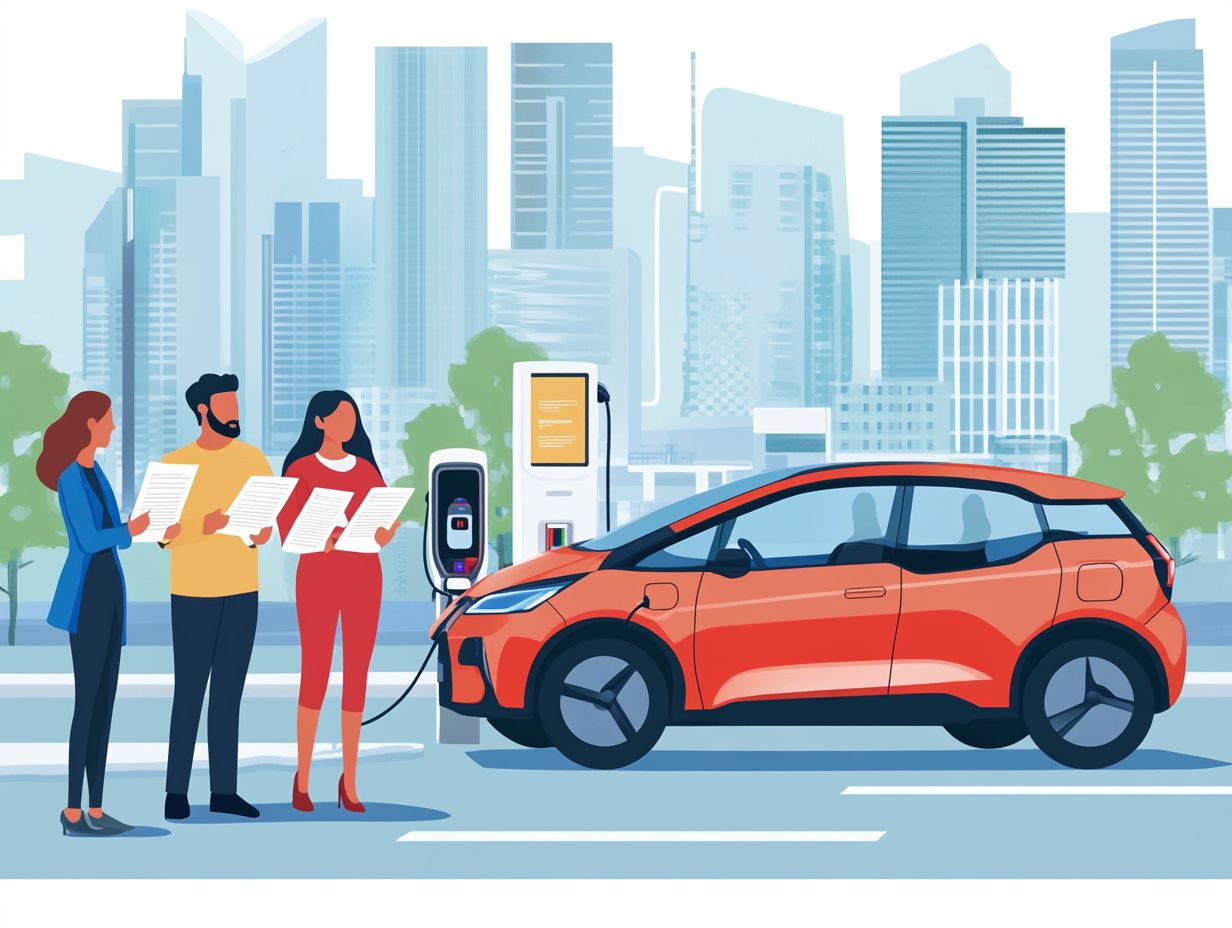
Finding charging stations for EVs is now easier, thanks to the robust expansion of charging infrastructure fueled by federal initiatives and state efforts, particularly in regions like California where the demand for EV charging stations is surging.
This progress is further enhanced by innovative solutions that help you efficiently locate available charging points. Mobile apps like PlugShare and ChargePoint are essential tools, offering real-time updates on station availability, user reviews, and route planning to minimize your downtime.
Websites dedicated to EV resources compile comprehensive maps of charging locations, making it easier for you to plan longer journeys. This easy access makes owning an electric vehicle exciting and hassle-free!
What Are the Performance Capabilities of Electric Vehicles?
Electric vehicles (EVs) offer performance capabilities that often outshine traditional gasoline cars, utilizing cutting-edge technology to provide you with an efficient driving experience marked by rapid acceleration and seamless handling just think of brands like Tesla.
These vehicles deliver instant torque, which is the force that helps a vehicle accelerate, allowing for quick starts and remarkable responsiveness on the road something that performance enthusiasts truly admire. Unlike gasoline engines, which take time to generate power, the electric drivetrain’s ability to provide torque instantly transforms an ordinary drive into an exhilarating experience.
Consumer perceptions can differ; while some might view EVs as lacking in driving excitement, many enthusiasts appreciate the distinct driving dynamics that electric motors deliver. They often find these vehicles more engaging in terms of handling and cornering stability, making each drive a memorable adventure.
Are you ready to embrace electric mobility? Join the electric vehicle revolution today for a cleaner, more exciting drive!
Are Electric Vehicles Safer Than Gas-Powered Cars?
Electric vehicles (EVs) are often seen as just as safe, if not safer, than their gasoline-powered counterparts. Organizations like the EPA have conducted extensive safety testing that underscores their effectiveness in reducing vehicle emissions while enhancing passenger protection.
In addition to rigorous crash testing, many electric models come equipped with advanced safety technologies such as automatic emergency braking, lane-keeping assist, and adaptive cruise control. These tools are designed to prevent accidents before they even have a chance to occur.
The low center of gravity in EVs, a result of their battery packs, contributes to greater stability and diminishes the risk of rollovers. Their innovative designs include crumple zones that efficiently absorb energy during a collision, significantly boosting passenger safety.
When you compare them to traditional gasoline vehicles, the array of safety features unique to EVs showcases a genuine commitment to providing a safer driving experience overall.
What Is the Environmental Impact of Electric Vehicles?
The environmental impact of electric vehicles (EVs) is often misunderstood. Typically, they produce significantly lower carbon emissions and greenhouse gases compared to gasoline cars especially when charged with renewable energy and benefiting from effective battery recycling practices.
When you consider the total lifespan from manufacturing to disposal these vehicles can contribute to a much smaller carbon footprint. By utilizing energy from wild, solar, or hydro sources for charging, you can amplify the positive effects on air quality and further reduce dependence on fossil fuels.
Advancements in battery technology are leading to more efficient recycling methods. This not only minimizes waste but also recovers valuable materials for future use. This holistic approach to sustainability highlights the vital role EVs can play in combating climate change and fostering a cleaner, healthier environment.
How Does Maintenance for Electric Vehicles Compare to Gas-Powered Cars?
When you compare maintenance for electric vehicles (EVs) and gasoline cars, it becomes clear that EVs often have lower maintenance costs. They feature fewer moving parts and less frequent servicing needs, making them a compelling choice for discerning drivers like yourself.
The battery technology in EVs is pivotal to overall upkeep. It requires occasional monitoring. Typically, these batteries outlast traditional engine components by a significant margin.
As for charging, owning an EV allows you to take advantage of home charging stations. This can result in considerable cost savings over time compared to the ongoing expenses of gasoline refueling.
Factors such as battery capacity and charging speed can impact the convenience of your ownership experience, especially during long trips, potentially leading to extra costs for fast charging.
Ultimately, these factors can significantly influence your costs and enhance the appeal of owning an EV as a forward-thinking choice in today’s automotive landscape.
Frequently Asked Questions
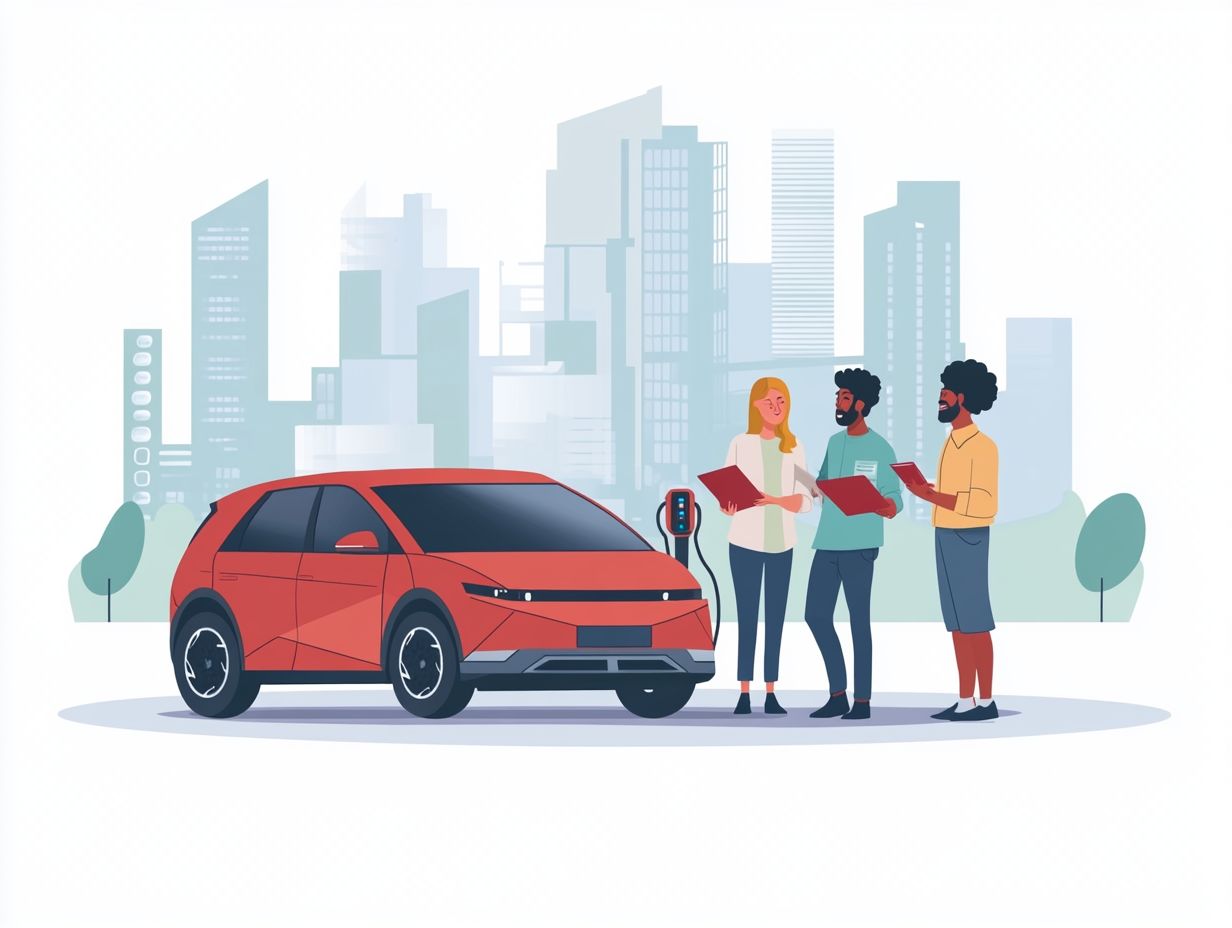
What are the 7 myths about electric vehicles debunked?
- They have a limited range.
- They are too expensive.
- They are not as safe as traditional vehicles.
- They are not as environmentally friendly as advertised.
- They are not as reliable.
- They are difficult to charge.
- They are not as powerful as gas-powered vehicles.
Do electric vehicles have a limited range?
No, this is a common misconception. Did you know that most modern electric vehicles can travel over 300 miles on a single charge? To learn more about these misconceptions, check out understanding EV maintenance myths.
Are electric vehicles too expensive?
While electric vehicles may have a higher upfront cost than traditional vehicles, they can save you money in the long run due to lower fuel and maintenance costs. Many more affordable options are now available in the market.
Are electric vehicles not as safe as traditional vehicles?
This is not true. Electric vehicles go through the same safety testing and regulations as traditional vehicles and often feature additional safety enhancements due to their design.
Ready to experience the benefits of electric vehicles? Discover your options today!
Are electric vehicles really as environmentally friendly as advertised?
Yes, electric vehicles produce zero emissions while driving. Charging them with renewable energy also lowers their impact on the environment!
Are electric vehicles reliable?
Yes, electric vehicles have fewer moving parts. This means they require less maintenance than traditional vehicles, making them more reliable over time!
Is it difficult to charge electric vehicles?
No, charging electric vehicles is easy! With more charging stations and home charging options, most drivers simply charge their vehicles overnight while they sleep.

